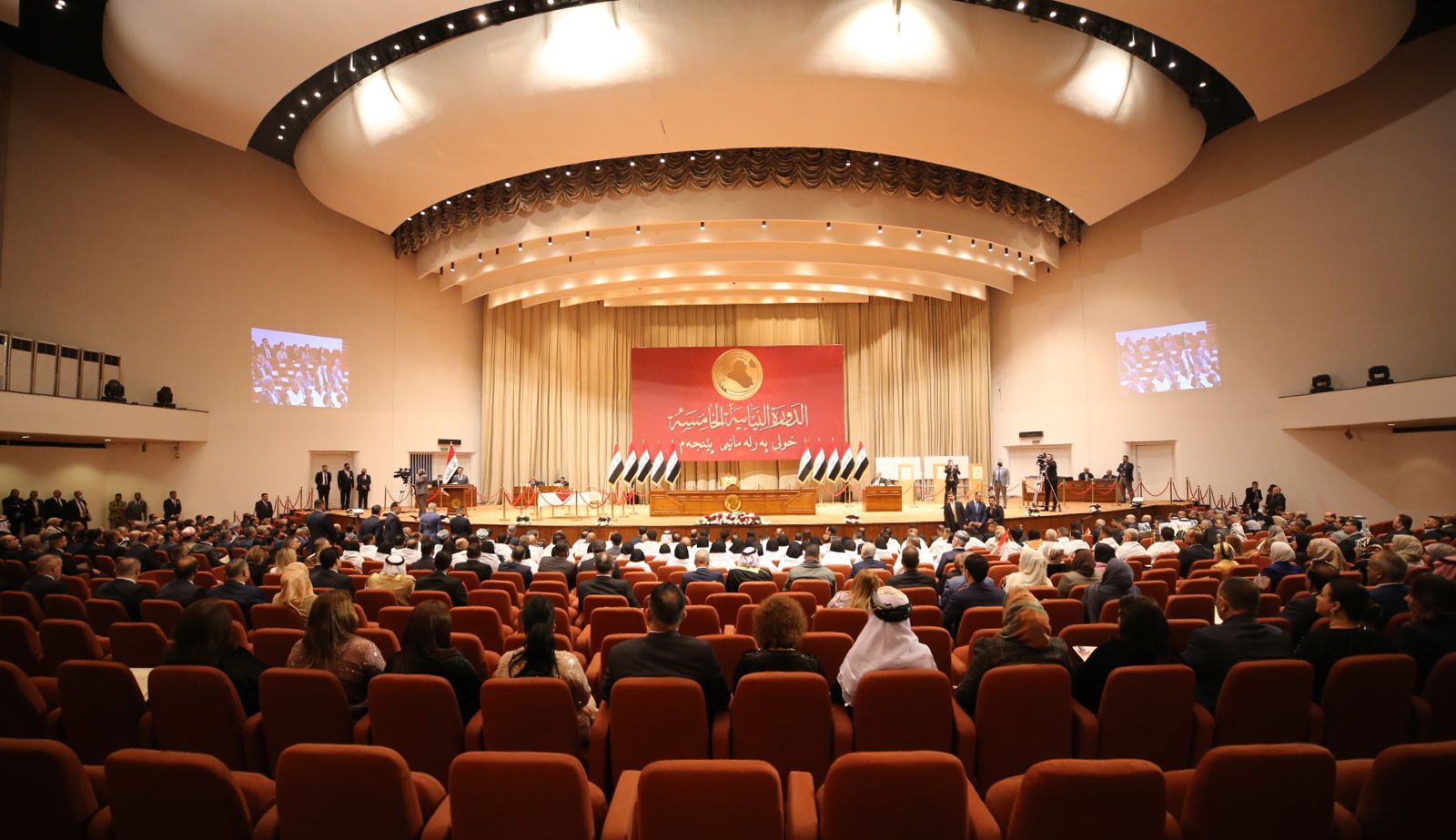Parliament: Failure to elect a president for Iraq within the constitutional period requires early elections within 60 days
Parliament: Failure to elect a president for Iraq within the constitutional period requires early elections within 60 days
2022-02-06 22:47
 Shafaq News/ The independent member of the House of Representatives, Basem Khashan, said on Sunday that failure to elect a new president of the Republic of Iraq within the period specified by the permanent constitution requires holding early elections in the country within a period of two months.
Shafaq News/ The independent member of the House of Representatives, Basem Khashan, said on Sunday that failure to elect a new president of the Republic of Iraq within the period specified by the permanent constitution requires holding early elections in the country within a period of two months.
Khashan said in a post on the social networking sites “Facebook” today, “The Federal Supreme Court Decision No. (51 / Federal / 2010), which authorized the continuation of the President of the Republic to exercise his duties until the election of a new president (..) is incorrect, because the blocking third He may delay his election for four years, and this is very possible now or in the future,” he asked, “Will the (current) president and government continue for another four years?”
The Iraqi constitution stipulates that the president of the republic (whose term has expired) shall continue to exercise his duties, provided that the new president shall be elected within thirty days from the date of the first session of the parliament session in its new session.
And Khashan, a lawyer, added: This period is inevitable, and may not be exceeded, and since the legalization of exceeding this inevitable period without restriction necessarily means the continuation of the permissibility of the continuation of the president and the expired government until the end of the electoral cycle.
He also continued by saying, “This contradicts the principles of democracy. The failure to elect the president within the period specified by the constitution requires early elections to be held within 60 days from the date of the last date for electing the president,” noting that “this is the nuclear solution that forces the competing blocs to abide by this period.” Inevitability, other than that, the country will remain captive to the third who has an interest in the continuation of the president and the outgoing government.”
The independent deputy noted that “the nuclear constitutional solution is early elections, the results of which may punish those who obstruct the election of the president for non-objective reasons, or reward them if their reasons correspond to the will of the people. Otherwise, Iraq will remain captive to the whims and desires of blocs that do not think of anything other than their partisan interests.”
The Presidency of the House of Representatives set the seventh of February as the date for electing a president of the Republic of Iraq, but the Sadrist movement decided on Saturday to boycott the session by order of its leader Muqtada al-Sadr.
Twenty-five candidates are competing for the position of President of the Republic, most notably the Union candidate, the current president, Barham Salih, and the Democratic candidate, Hoshyar Zebari.
And the Federal Supreme Court decided earlier this month that the House of Representatives elects a president of the republic from among the candidates for the presidency of the republic by a two-thirds majority of the total number of members of the total parliament, and the quorum is achieved in the presence of two-thirds of the total number of members of the total parliament.
The decision came in response to a request submitted by the current president, Barham Salih, to indicate the majority that must be available to start voting on the election of the president of the republic.
The dispute intensified between the two Shiite poles represented by the Sadrist movement, which won the most votes in the recent elections, and the coordination framework that includes blocs that expressed their rejection of the election results.
The leader of the Sadrist movement, Muqtada al-Sadr, insists on forming a majority government that seeks to exclude the leader of the State of Law coalition, Nuri al-Maliki, who served as prime minister for two terms.
On the tenth of last October, Iraq held early legislative elections to get out of a political crisis that swept the country after large demonstrations in the central and southern regions in 2019 in protest against the widespread unemployment in society, the spread of financial and administrative corruption in government departments and institutions, and the deteriorating reality The service and the livelihood, which prompted the former prime minister, Adel Abdul-Mahdi, to resign under popular pressure.
As soon as the preliminary results of the elections were announced, the voices of political forces and actors rose in their rejection of losing many seats, accusing them of major fraud in the ballot, which was denied by the executive and judicial authorities, at a time when the United Nations and international organizations praised the integrity of the electoral process.
The Sadrist bloc topped the final election results approved by the Federal Supreme Court by obtaining 73 seats, while the “Progress” coalition led by Muhammad al-Halbousi won 37 seats, and the State of Law coalition led by Nuri al-Maliki won 33 seats.
The Kurdistan Democratic Party won 31 seats, while the Al-Fateh Alliance led by the Secretary-General of Badr Organization Hadi al-Amiri and the Kurdistan Alliance won 17 seats.
shafaq.com
